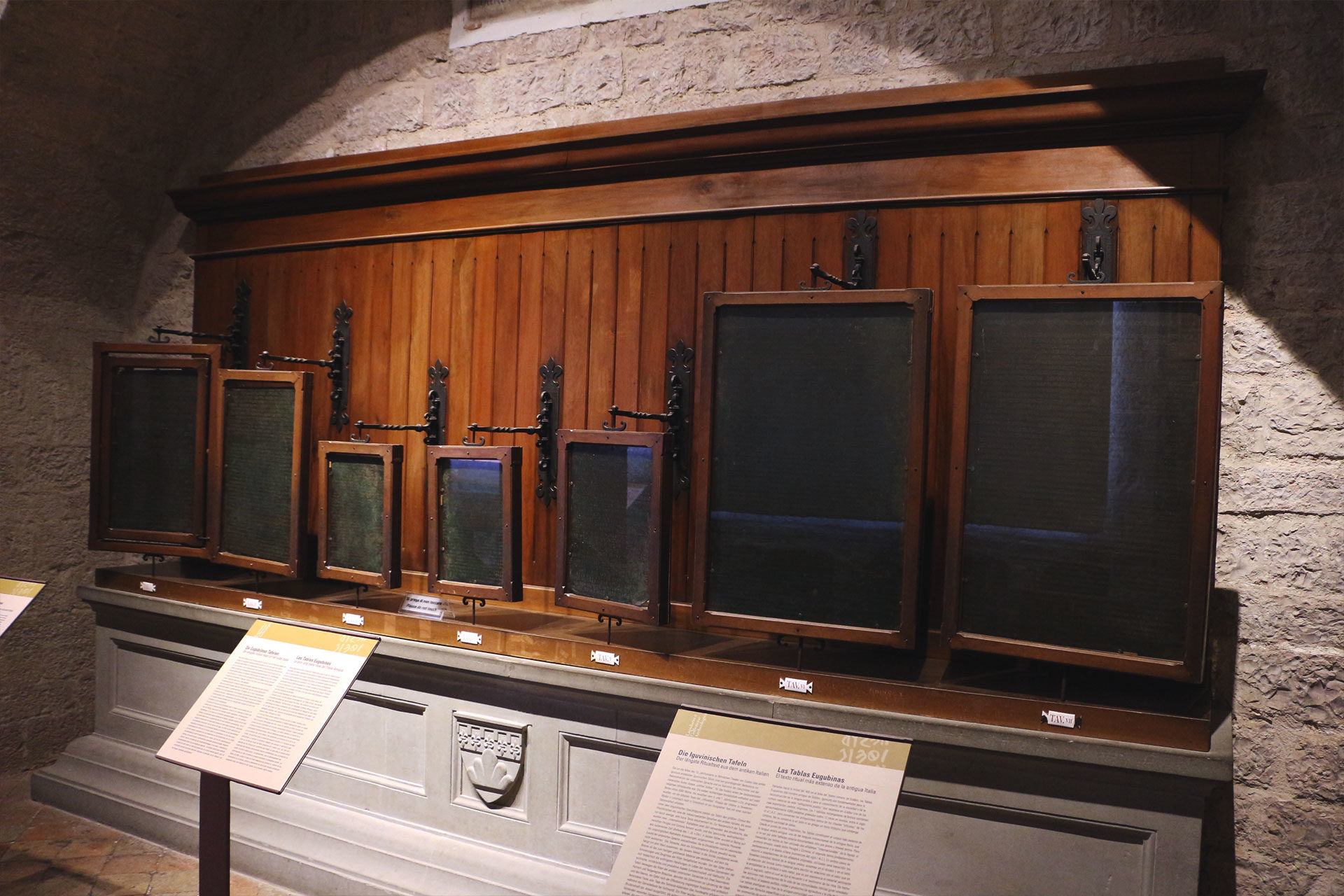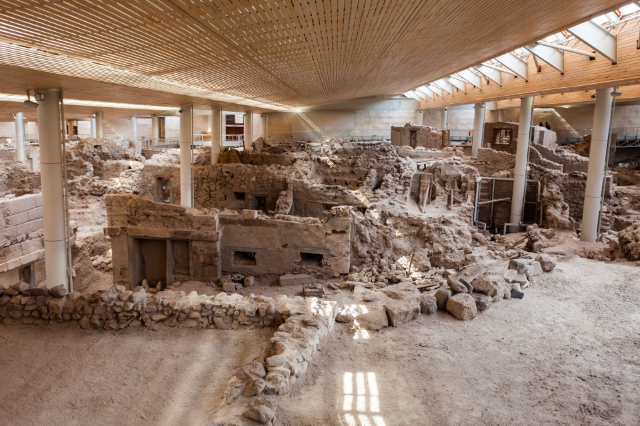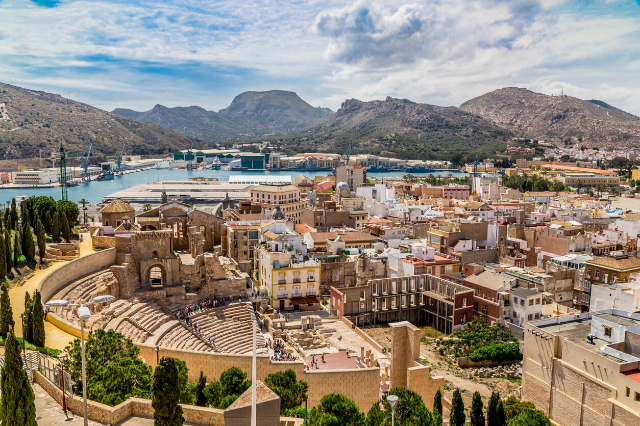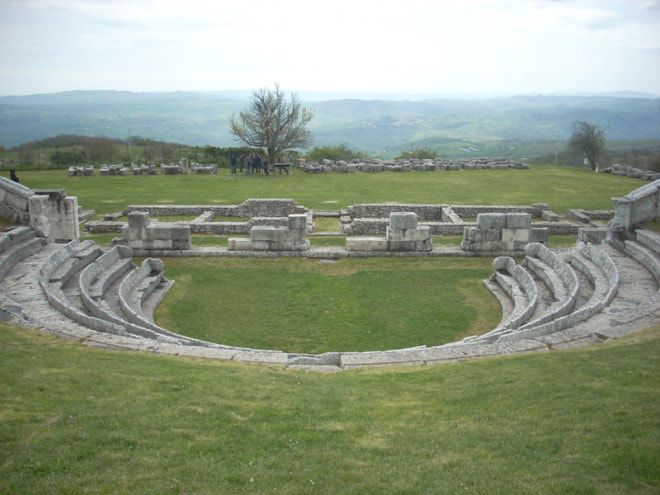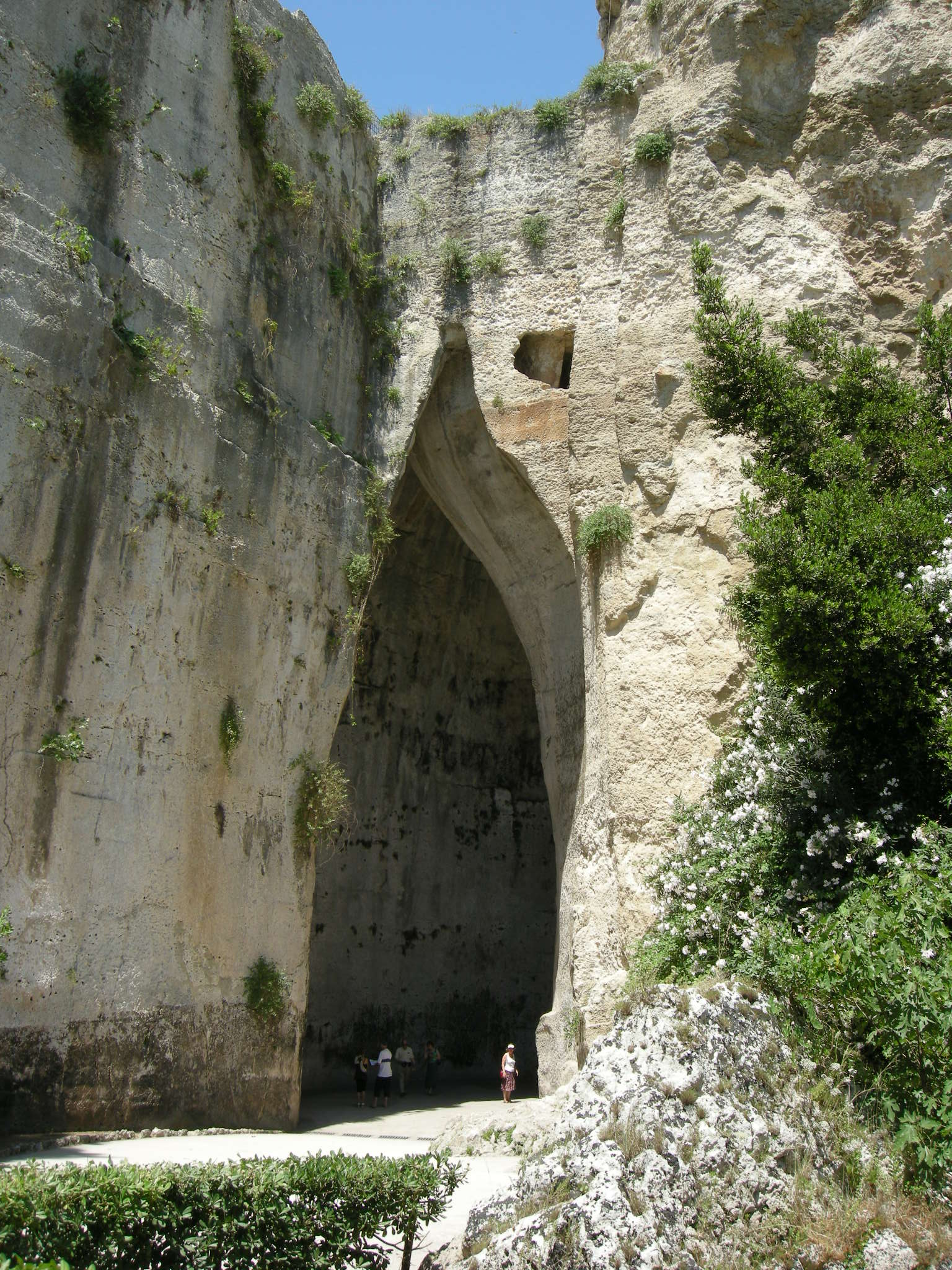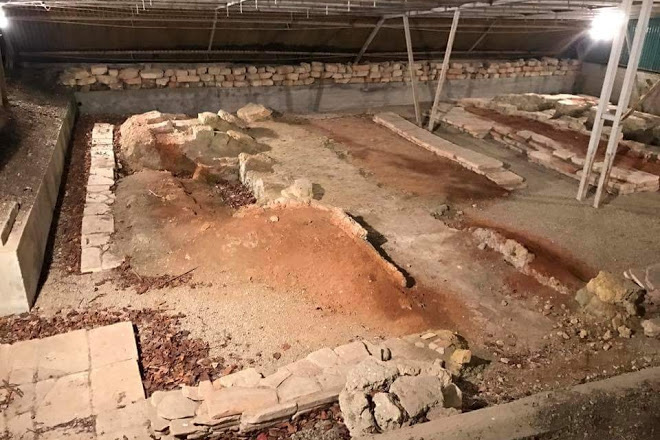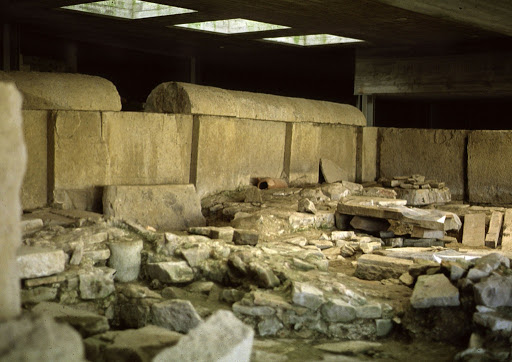Gubbio was one of the most important religious centres of the "very ancient people" of the Umbrians who occupied, at the time of the expansion of Rome, a territory comprising parts of present-day Umbria, Marche and Romagna. Thanks to its central position, the Umbrian territory is a place of communication, exchange and circulation of materials, techniques, ideologies and cultural models. Fundamental to the knowledge of the society, material culture and language of this people are the Tavole Iguvine (from the ancient name of Gubbio, Iguvium), the longest and most important ritual text of ancient Italy. There is neither in Latin nor in Greek a liturgical text containing such a multiplicity of data. Found around the middle of the 15th century in the area of the Roman Theatre of Gubbio, the Tavole Iguvine are seven bronze plates written in the Umbrian language using two ‘international’ alphabets of the time, the first Etruscan and the second Latin. Engraved at different times, between the 3rd and 1st century B.C., they undoubtedly reproduce even older texts. In the Tables are described the ritual practices of various purifying ceremonies and sacrifices to be made in the ominous case of adverse auspices and on the occasion of particular festivities or moments of the cereal calendar. In some cases the text of the prayers to be pronounced is also transcribed. The rites are officiated by the members of the confraternity of the Atiedii, which must have had, at first, also had a role in the political management of the communities involved in the ceremonies. The divine permeates and substantiates in its infinite manifestations the life of the Umbrians expressing itself in numerous divinities, which are not anthropomorphic but constitute the divinization of man’s actions and the most significant aspects of his social and ritual life. Among these, Jupiter the Father (defined as Physius, i.e. god who consecrates and guarantees the social pact), Mars (god of nature and war) and Uofiono (god of the lineage) are the most important.
